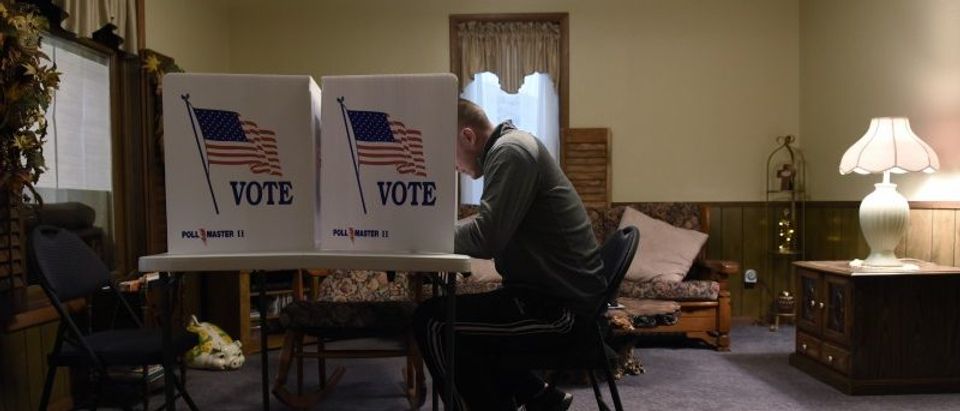Hillary Clinton won the popular vote in the 2016 presidential election. Democrats and the liberal media will remind us of that fact for years to come, as we are still reminded that Al Gore won the popular vote 16 years ago. The standard response from Republicans and the conservative media is that it doesn’t matter who wins the popular vote. The constitutionally prescribed method for selecting the president is the Electoral College. Donald Trump and George W. Bush before him won in the Electoral College and that is all that matters.
To which the Clinton and Gore supporters respond that the Electoral College is an anachronism and should be done away with, leading the Trump and Bush supporters to explain the Framer’s rationale for creating the Electoral College and to note that, in any event, everyone knew the rules before the election. Of course if Clinton had prevailed in the Electoral College while losing the popular vote Republicans would be calling for elimination of the Electoral College while Democrats defend it as the constitutional way.
There are principled arguments to be made on both sides of that debate, but there is little prospect that three quarters of the states will ever agree to amend the constitution to the disadvantage of all but the most populous states. While much is uncertain in the wake of the election of 2016, it has to be crystal clear to the majority of voters in so-called flyover country that without the Electoral College they would be facing four years of a president selected by west coast and North Atlantic voters.
Rather than engage in what amounts to an academic debate about the merits of the Electoral College, we could better ask why winning the popular vote, even by the narrowest of margins, is thought to be so significant. To be sure, in most American elections, save for president, the candidate with the most votes wins. But other than providing a simple and clear method for determining who will assume office, why should we put so much stock in majority rule?
In the 2016 presidential election no candidate received a majority of the votes cast. Hillary Clinton, by the latest count, garnered 48.1% to Donald Trump’s 46.4%. Trump should assume office with a large dose of humility, not because he lost the popular vote by 2.5 million but because even if he had won the popular vote less than half of the voters supported him. That’s the way it is in most American elections. The prevailing candidate seldom wins by more than a few percentage points. If the margin of victory is as little as 8 or 10 points we call it a landslide – a mandate. But is there really a mandate when as many as 45 percent of the voters preferred the other guy?
We accept as the winner the candidate receiving the most votes not because a majority (even a plurality in some elections) somehow intuits the true public interest but because we need to have a winner – someone to fill the position. Clearly the general welfare is more likely to be served by officials elected by a majority of voters than by officials selected by undemocratic means. But it does not follow that officials receiving a bare majority of votes are magically imbued with special insights on the public good and with solutions to all of society’s challenges.
We have witnessed over the past eight years the consequences of attributing too much to narrow electoral victories. Obamacare was passed without a single Republican vote, stalemate ensued in the Congress and President Obama, declaring that he had won the election, resorted to his pen and phone to do what Congress would not agree to. Now, with the election of Donald Trump and Republican control of both houses of Congress, Republicans are likely to follow a similar winner-takes-all approach based only on having narrowly won most their elections (though not the popular vote for president).
There is no denying that electoral victors have authority to ignore the views of the losing side and do as they choose with the powers granted by a majority of voters. But it is no way to run a nation formed to “promote the general Welfare, and secure the Blessings of Liberty to ourselves and our Posterity.” Newly elected presidents always declare, as has president-elect Trump, that they will be president for all Americans. But that seldom means they will take into account the views of those who opposed their election. Rather it conveys the confident belief of the victors that their agenda will serve the interests of everyone including the losers, even if they do not realize it.
In the romanticized town meetings of yore, in which decisions were taken by consensus, everyone understood that compromise was necessary – there were seldom clear winners and losers. Somehow Americans need to recognize that compromise is also necessary in our extended (and deeply divided) republic. That realization will only come when we accept that a simple majority has little significance beyond establishing who gets to serve in public office. If the elected truly want to serve the general welfare and not just the interests of those who voted for them, they must recognize that the interests of those in the electoral minority warrant equal consideration in a democratic republic. And voters need to accept that being in the majority does not mean you have earned the right to dictate to the losers. It only means you got to choose the public official who is responsible to serve everyone.
The difference between winning with 50 percent of the vote plus one and losing with 50 percent of the vote minus one, is two votes. That’s all. Majority rule is how we resolve elections, not a magical solution to the challenges of governance.












